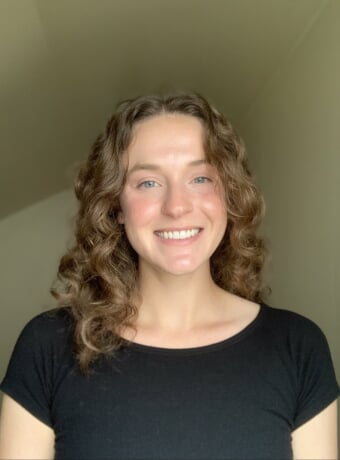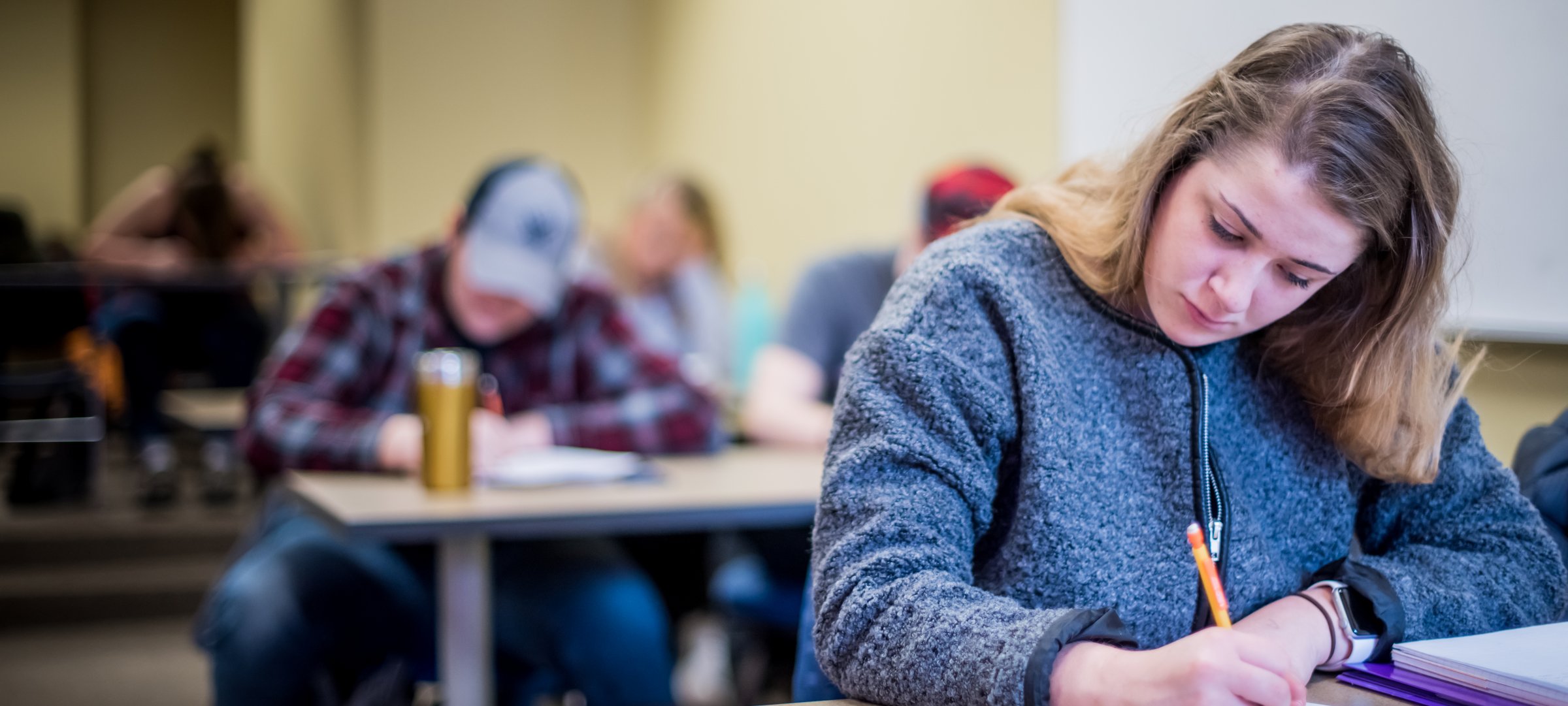As one of the earliest courses of study for most Huskies, UN 1015 Composition bridges students' reading, writing, and research skills developed prior to entering the University with those necessary for long-term success both in academia and beyond. This course provides students skills and knowledge that will help prepare them to develop academic literacy skills and aims to provide students with a rigorous introduction to the kinds of tasks they will do as a college student, to familiarize them with campus resources related to research and writing, and to help them develop portable critical reading, research, and writing processes that they will continue to develop in subsequent courses.
In UN 1015, students learn to analyze and produce communicative texts for a variety of audiences, contexts, and purposes. As they examine the communicative practices at work all around them, students learn to employ those strategies appropriately in their own projects. In the process, they develop a beginning familiarity with rhetoric, genre, critical reading and writing, research, assessing information, using sources, and collaboration.
While the written word remains the primary mode of communication for most academic work, UN 1015 recognizes multimodal composing—that is, communicating information not just through writing but also through visual, audio, and other modes of communication that are increasingly common in our digital and face-to-face environments.
Contact
Holly Hassel
- Professor of Composition
- Director, Composition Program
- hjhassel@mtu.edu
- Walker 310

Elizabeth Novotny
- PhD Candidate
- ecwahmho@mtu.edu
- Walker 331
Jennifer Nish
- Associate Professor of Rhetoric and Composition
- Academy of Teaching Excellence
- jmnish@mtu.edu
- Walker 304

D-Jay Bidwell
- PhD Student
- Graduate Teaching Instructor
- Assistant Director of Composition
- djbidwel@mtu.edu
- Walker 314
Course Objectives
- Rhetorical and Genre Awareness: Student work demonstrates an understanding of textual features and the relationship to audience, purpose, genre, and situation.
- Critical Reading and Research: The student work demonstrates the writer's effective, selective, and ethical use of sources; the writer uses critical reading strategies to integrate sources.
- Writing and Research Process Knowledge: Student work demonstrates an awareness, understanding, and intentionality of the writer's research and writing choices.
Core Assignments
While individual sections throughout Michigan Tech’s composition program represent diverse teaching styles, all students must complete four common projects, or “Core Assignments.” There is some variation in how each section approaches these projects, but the basic requirements and learning objectives are standard for all sections. As such, in addition to various section-specific daily assignments, all students will complete the Comparative Source Analysis, the Annotated Bibliography or WorkNet, the Journal Article, and the Multimodal Project. In addition, two portfolios (a mid-term and final) will offer students opportunities to reflect and revise these Core Assignments.

MonsterComp
MonsterComp is an unofficial name for a selection of uniquely designed and facilitated sections of UN 1015 Composition. In addition to introducing students to college writing, MonsterComp is designed to support the new Humanities Department’s Graduate Teaching Assistants. MonsterComp provides an environment where experienced and novice instructors, as well as the Director of Composition, collaboratively deliver course content.
Students in MonsterComp complete the same core assignments as students in other sections of UN 1015, but the instruction setting and structure differ. Early each week, MonsterComp meets in a lecture hall to explore concepts in college writing. Then, later in the week, each section meets independently with their secretion instructors to practice those concepts in a more traditional setting.
In MonsterComp, both students and teachers have the opportunity to learn from a wide range of writing and teaching styles.
Advanced Composition
In HU 3015 Advanced Composition, students build on their knowledge of writing researched arguments by exploring the process of conducting both primary and secondary research and compiling their findings into written form. Multidisciplinary inquiry-based projects ask students to write for both academic and lay audiences in print and digital forms. Specific research methods, writing technologies, and topics vary by section.
Course Objectives
-
Better understand how writing functions to accomplish work in disciplinary and practical contexts
-
Demonstrate critical and creative thinking by summarizing, analyzing, and synthesizing evidence from primary and secondary readings to support your own ideas.
-
Interact respectfully and productively with, and respond to, the ideas of other scholars (both the authors of the texts we will read and your fellow students).






